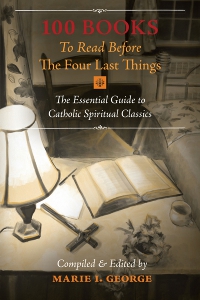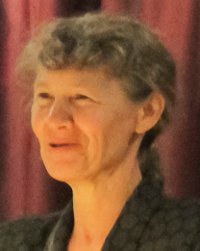- Home
-
About
 Fidelity & Excellence
Fidelity & ExcellenceThomas Aquinas College is unique among American colleges and universities, offering a faithfully Catholic education comprised entirely of the Great Books and classroom discussions.
-
A Liberating Education
 Truth Matters
Truth MattersTruth, and nothing less, sets men free; and because truth is both natural and supernatural, the College’s curriculum aims at both natural and divine wisdom.
-
A Catholic Life
 Under the Light of Faith
Under the Light of FaithThe intellectual tradition and moral teachings of the Catholic Church infuse the whole life of Thomas Aquinas College, illuminating the curriculum and the community alike.
-
Admission & Aid
 Is TAC Right for You?
Is TAC Right for You?Do you enjoy grappling with complex questions? Are you willing to engage in discussions about difficult concepts, with the truth as your ultimate goal?
-
Students & Parents
 Mind, Body & Spirit
Mind, Body & SpiritThere is always something to do at TAC — something worthwhile, something fulfilling, and something geared toward ever-greater spiritual and intellectual growth.
-
Alumni & Careers
 What Can You Do with a Liberal Education?
What Can You Do with a Liberal Education?Nothing speaks more to the versatility of the College’s academic program than the good that our alumni are doing throughout the Church and the world.
- Search
- Giving
Alumni Authors & Editor Recommend “100 Books to Read Before the Four Last Things”
 Looking for some good spiritual reading this Lent? Graduate Dr. Marie I. George (’79) can help you.
Looking for some good spiritual reading this Lent? Graduate Dr. Marie I. George (’79) can help you.
A professor of philosophy at St. John’s University in New York, Dr. George has compiled and edited a newly published collection of essays, 100 Books to Read Before the Four Last Things: The Essential Guide to Catholic Spiritual Classics. Although the book delivers on its title — cataloguing 100 works worthy of reading prior to death, judgment, heaven, and hell — it is much more than a mere “bucket list.” Its essays carefully examine each title subjectively, allowing readers to choose the books best suited to their temperament and current stage of spiritual development.
The book’s 37 featured reviewers are all laypeople, writing for fellow laypeople — and 15 are Thomas Aquinas College alumni:
- Maureen (Ivers ’79) Coughlin
- Daniel Davidson (’91)
- Margot (Foucht ’92) Davidson
- Barbara (Nacelewicz ’81) Doran
- Angela (Rioux ’10) Fuhrman
- Marie I. George (’79)
- Elizabeth Lademan (’08)
- Cathy (Short ’77) McCarthy
- Mathilde (deWit ’80) Misko
- Lise (Moreau ’82) O’Reilly
- Jeanette (Langley ’81) Roberts
- Mary Ann (Halpin ’79) Shapiro
- Mark Langley (’89)
- Christopher Decaen (’93)
- William Short (’80)

Generously, Dr. George is donating half of the book’s proceeds to the College. (A member of the Lay Fraternities of St. Dominic, she is contributing the other half to the Dominican House of Studies in Washington, D.C.) In the following interview, she discusses both the origins and details of 100 Books.
Q: Could you please tell us about the recommended titles?
A: The vast majority of the works reviewed are non-fiction, with a couple of exceptions, one of which is C.S. Lewis’ The Screwtape Letters. The works range from well-established spiritual classics, such as St. Teresa of Avila’s Interior Castle and St. Thérèse of Lisieux’s Story of a Soul, to more recent works that are destined to become classics (and perhaps in some cases have already achieved that status), e.g., Gabrielle’s Bossis’s He and I, Jacques Philippe’s Interior Freedom, and Fr. D’Elbée’s, I Believe in Love. The works are categorized by theme: autobiographical works, Christ, Divine Providence, Mary, the Mass and the Blessed Sacrament, meditation topics, the mystics, prayer, retreats & Ignatian spirituality, the spiritual life in general, and virtue.
Q: Approximately how long is each essay?
A: The reviews, for the most part, are one to two pages long. Virtually all of the works are reviewed by two different laypeople. If there is anything obvious about spiritual reading, it is that what one person finds beneficial another person may find boring or incomprehensible. The purpose of the guide is not only to let readers know about works they may have never heard of and to inform them of their contents, it is also to help them pick a work that will help them, given their background, temperament, and stage of spiritual development. The broader perspective provided by having two reviewers makes it easier for a person to judge whether he or she is likely to find a given work spiritually nourishing.
Q: How did this project come to mind?
A: The concept for this book resulted from two things. The first was having a book recommended to me by a spiritual director that did absolutely nothing for me. The second was having friends within the space of a year recommend two spiritual writers whom I’d never heard of, from whom I drew immense profit. Being partly of German extraction, it seemed to me that a systematic guide sensitive to differences that make a work appealing or unappealing to different individuals would encourage people to do more spiritual reading, thereby helping them draw closer to God.
Q: Why did you choose so many alumni authors?
A: The reason I turned to TACers as contributors was because I knew that they were solidly grounded in the Faith and they knew how to read. The College has an amazing network — some of the reviewers I did not know personally, but learned about through other TACers who are my friends.
Q: What prompted you to contribute half of the proceeds to the College?
A: The contributors were told from the beginning that the proceeds would go to charitable causes. My gratitude for the education I received at TAC, combined with the fact that so many of the reviewers were TAC alumni, made TAC an obvious choice.

